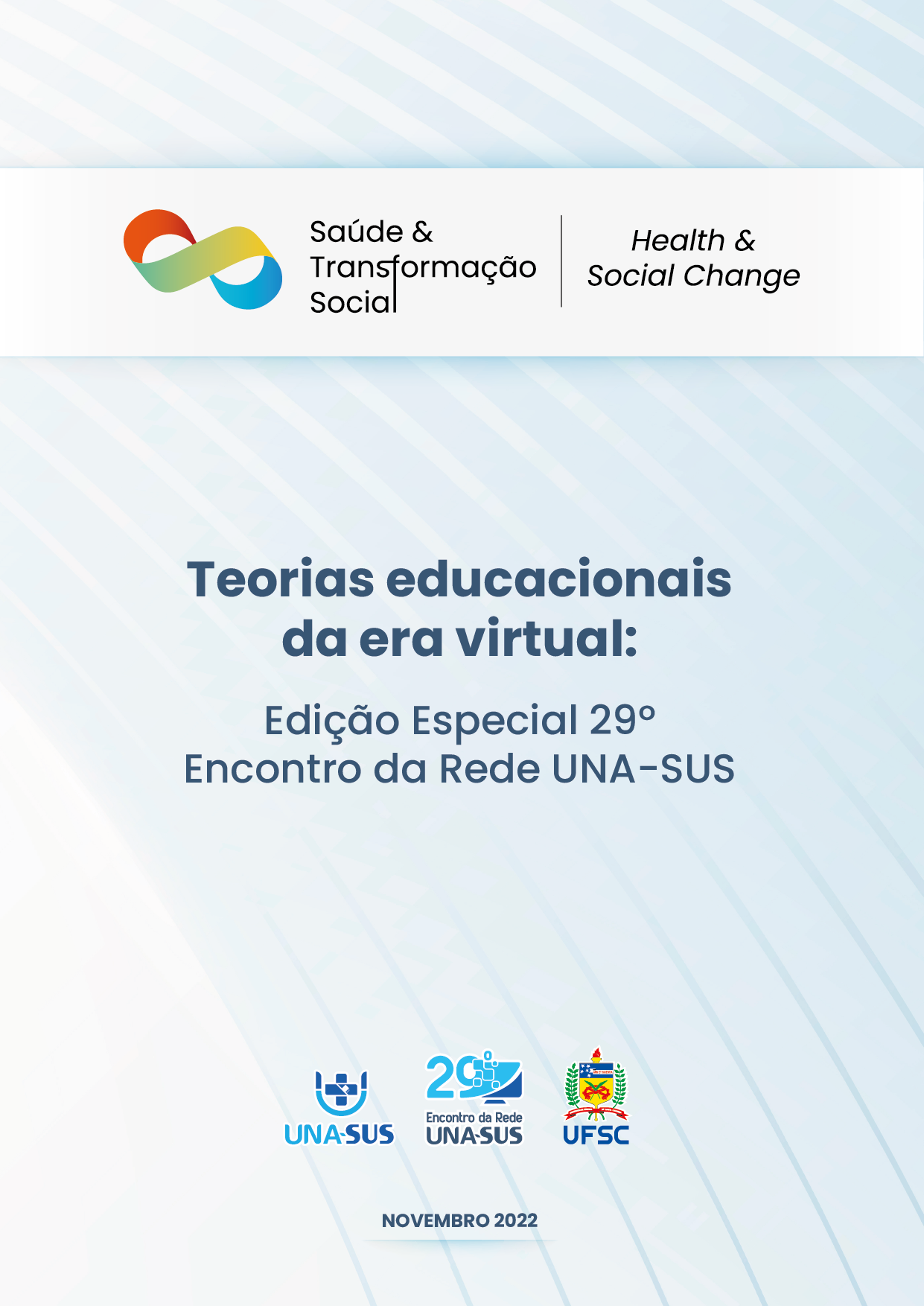Estudo do Módulo Eletivo no Curso de Especialização em Saúde da Família: Necessidades Sentidas no Processo Educativo
Abstract
The Elective Module integrates the curricular matrix of the Specialization Course in Family Health (Portuguese acronym: CESF) at Fiocruz Mato Grosso do Sul in partnership with the UNA-SUS (Open University of the Brazilian SUS). Students have the autonomy to take self-instructional courses for improvement/qualification in the health area with a minimum workload of 30 hours for completion of credits later. The aim of this study was to analyze the Elective Module of the CESF with a view to understand the needs felt by students throughout their learning process. This is a cross-sectional, retrospective, descriptive, documentary study with a quantitative approach of secondary data from four groups of physicians from provision programs (2019 to 2022). A total of 563 certificates from 539 students from April to June 2022 were analyzed using descriptive (absolute and relative frequency) and inferential statistics. In inferential statistics, the Pearson’s chi-square test was applied to categorical variables. A significance level of 0.05 was considered. The four teaching units of the course were considered for thematic categorization. Results: Students were from nine Brazilian Federative Units, and most (72.2%) came from the north and central-west regions. Of all certificates, most courses (92.54%) were offered by the UNA-SUS in thematic areas related to chronic noncommunicable diseases and violence, 241 (38.1%); followed by themes related to management, 104 (18.47%); and clinical, urgency and emergency care, 59 (10.48%). Among institutions promoting the courses, the Universidade Federal de Santa Catarina - UFSC provided the greater number of certificates (163 - 28.95%). In relation to the distribution of themes chosen by students, the central-west (20.7%) and north regions (15.28%) stood out with chronic noncommunicable diseases. We expect this study will collaborate with training institutions in the implementation of continuing education strategies.
Keywords: Family Health, Distance Learning, Health Services Needs and Demands.
Downloads
Published
How to Cite
Issue
Section
License
Da submissão, os autores deverão encaminhar cópia digitalizada do seguinte documento assinados por todos os autores do manuscrito, conforme modelo que se segue, nos documentos suplementares que constam no processo de submissão.
Modelo de declaração de responsabilidade, agradecimentos e transferência de direitos autorais
Declaro para fins legais a cerca do manuscrito "nome do manuscrito" que
1. Contribuí substancialmente para a concepção e planejamento, e/ou análise e interpretação dos dados;
2. Contribuí significativamente na elaboração do rascunho e/ou na revisão crítica do conteúdo;
3. Participei da aprovação da versão final do manuscrito;
4. Obtive permissão por escrito de todas as pessoas mencionadas nos Agradecimentos, as quais contribuíram substancialmente à realização deste manuscrito, mas não preencheram os critérios de autoria;
5. Caso não tenha incluído sessão de Agradecimentos, certifico que nenhuma pessoa fez qualquer contribuição substancial para sua confecção.
6. Atesto que, se solicitado, fornecerei ou cooperarei na obtenção e fornecimento de dados sobre os quais o artigo está baseado, para exame dos editores.
7. Em caso de aprovação, concordo com a transferência dos direitos autorais referentes ao manuscrito, à Revista "Saúde & Transformação Social. O manuscrito e seu conteúdo se tornarão propriedade exclusiva da Revista, vedada qualquer produção, total ou parcial, em qualquer outra parte ou meio de divulgação, impressa ou eletrônica, sem prévia e necessária autorização dos responsáveis legais pela Revista
Local e data
Nome dos autores (por extenso) e respectivas assinaturas

